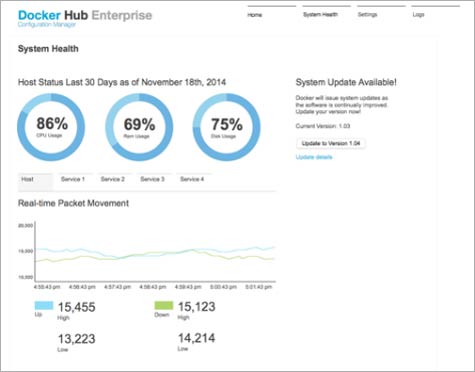At the DockerCon Europe 2014 conference today, Docker significantly expanded its enterprise ambitions with the launch of the Docker Hub repository that can now be deployed on premise and with the preview of three Docker orchestration services that are under development.
Available in the form of alpha code now with general availability scheduled for the second half of 2015, the new Docker orchestration services consist of:
- A Docker Machine automated provisioning tool.
- An application composition service, called Docker Compose, which allows organizations to assemble Docker containers to build applications in a few keystrokes.
- A clustering service, dubbed Docker Swarm, which creates pools of Docker containers distributed across multiple servers.
All three services will be exposed via public application programming interfaces (APIs) that Docker plans to publish.
David Messina, vice president of enterprise marketing for Docker, says that as Docker containers continue to gain momentum inside and out of the cloud, it’s become apparent that IT organizations will need their own repositories to manage the deployment of applications based on those containers.
The new Docker Hub Enterprise offering, which is based on the same software that Docker used to create a hosted version of Docker Hub, is now available in a preview mode that will turn into a full-fledged beta in February. It is designed to allow IT organizations to address the management, governance and compliance issues associated with building and deploying applications based on Docker, says Messina.
Messina notes that applications built using Docker containers will be highly distributed. In fact, applications based on Docker can now be built using a private repository or using any one of the over 60,000 Docker services that have already been published in Docker Hub. To that end, IBM, Microsoft and Amazon Web Services (AWS) have all announced that they will make instances of Docker Hub Enterprise available as a private cloud in their services as well. IBM also announced that is joining the growing host of cloud service providers that will support Docker containers.
Because Docker containers are easier to spin up than traditional virtual machines, the general expectation is that not only will the number of Docker containers that need to be managed sprawl out of control, the number of applications that will be developed across the enterprise will also increase exponentially as developers become more productive using containers. Before that happens, however, Docker is moving to give enterprise IT organizations the tools required to rein in potential container chaos long before it gets out of hand.




